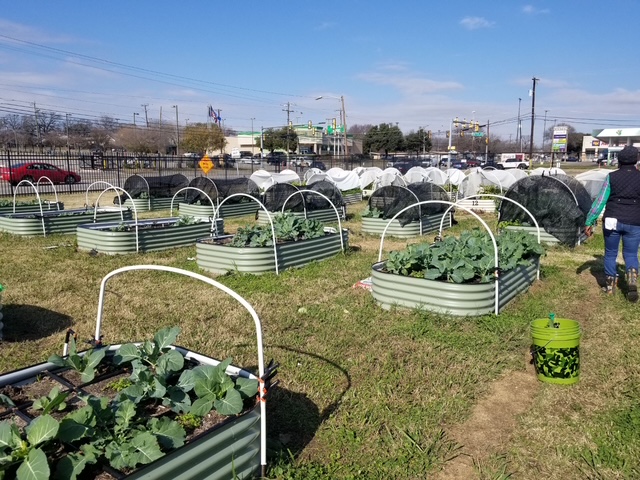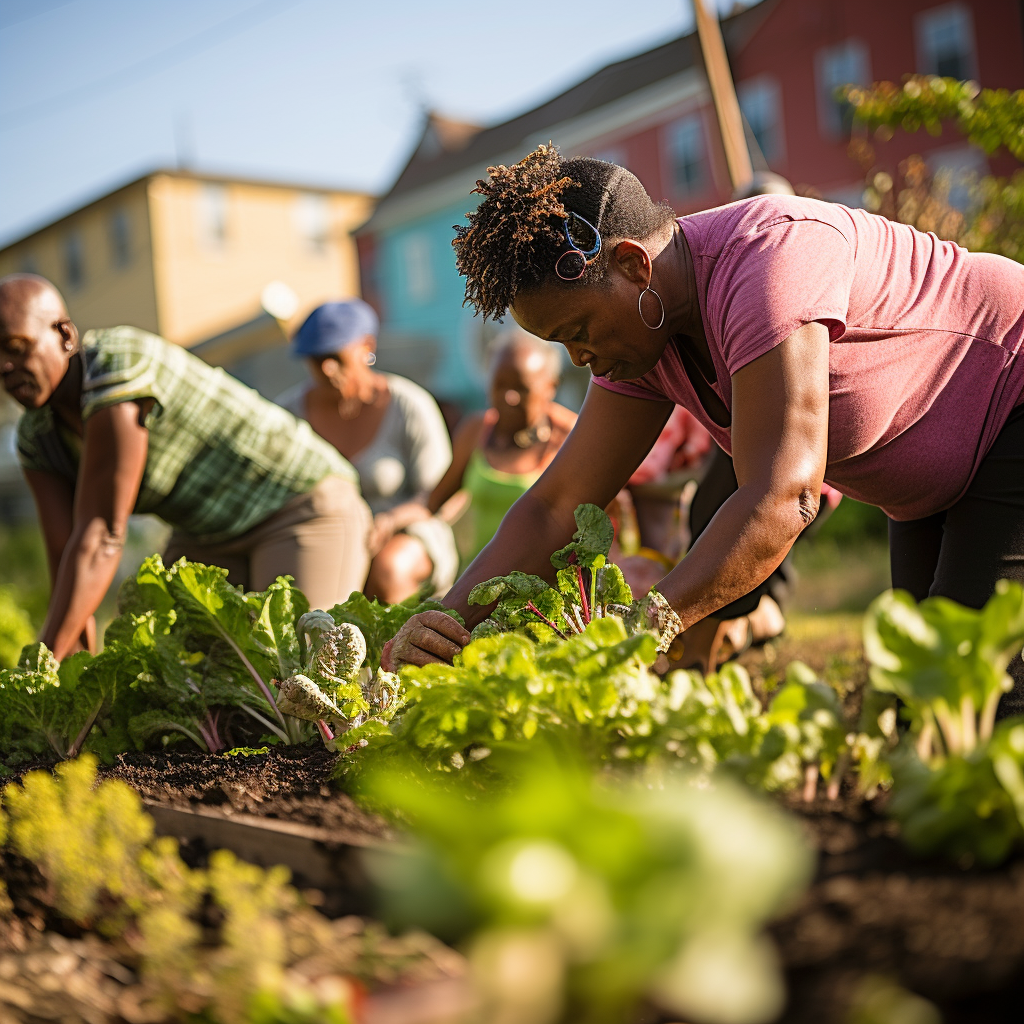8' x 4' Plot
The 8'x4' Plot is ideal for a family to grow a variety of vegetables, herbs and flowers.

The 8'x4' Plot is ideal for a family to grow a variety of vegetables, herbs and flowers.

A community garden means many things to many people. For some, a community garden is a place to grow food, flowers and herbs in the company of friends and neighbors. For others, it’s a place to reconnect with nature or get physical exercise. Yet others use community gardens simply because they lack adequate space to have a garden at their house or apartment. Regardless of why you are choosing to take part in a community garden, the activity comes with both responsibilities and rewards.
Successful and vibrant community gardens rely on the dedication of each and every gardener to 1) maintain his or her own raised bed and 2) contribute to the upkeep and management of the entire garden. There are many jobs that need to be done in order to help the garden run smoothly, including keeping paths mowed or mulched, maintaining tools and equipment, planning events and workshops, stocking and hauling supplies and building raised beds, among other things. The adage many hands make light work is appropriate. If everyone pitches in according to their ability and desire, then the garden will prosper and grow.
Community gardening has the potential to offer a range of benefits to individuals, families, communities and the environment. Benefits include, but are not limited to, the following:
Food production — Community gardens enable people to grow high quality fruits and vegetables fot themselves, their families and their communities.
Nutrition — Some research indicates that community gardeners eat more fruits and vegetables than non-gardening families.
Exercise — Gardening requires physical activity and helps improve the overall physical health of gardeners.
Mental health — Interacting with plants and nature helps reduce stress and increase gardeners’ sense of wellness and belonging.
Community — Community gardens foster a sense of community identity and stewardship among gardeners. They provide a place for people of diverse backgrounds to interact and share cultural traditions.
Environment — Gardens help reduce the heat island effect in cities, increase biodiversity, reduce runoff from rain, recycle local organic materials and reduce fossil fuel use from long-distance food transport.
Learning — People of all ages can acquire and share skills and knowledge related to gardening, cooking, nutrition, health, culture, etc.
Youth — Community gardens provide a place for youth to explore gardening, nature and community.
Income — Produce grown at community gardens may be used to offset food purchases from the grocery store.
Crime prevention — Community gardens can help reduce crime.
Property values — Some research indicates that property values around community gardens increase faster than property values in similar areas without gardens.
